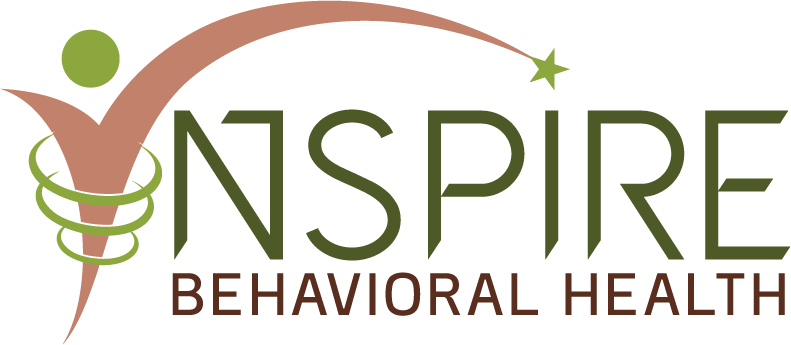
If you struggle to make new, meaningful friendships as an adult, we’ve got good news for you: it’s not you. It can be easy to wonder why it’s hard to make long-lasting friends as an adult. The truth is that the odds are simply stacked against us.
Again, we’ve got good news for you: While it may be more difficult to make friends as an adult, it’s definitely possible. Remember, other adults are looking for friends as well — so you’re in good company. Let’s talk about why making new friends as an adult is so hard, why we need to try anyway, and how to build those healthy relationships we all long for.
Making New Friends is Hard as an Adult
It’s a truth we all know – going to a yoga class with the same crew every week is not the adult equivalent of seeing someone on the playground every day. As a child, long-term exposure to the same children frequently resulted in friendships. As an adult, that’s the exception, not the rule. So, what’s behind the shift from making friends as a child to making friends as an adult?
As University of Maryland psychologist Marisa Franco shared in an interview, there are two key ingredients to friendship.
- Unplanned continuous interaction
- Shared vulnerability
Realistically, these are present less and less as we move into adulthood. Away from environments that expose us to the same people day after day, like extracurriculars and school classes, it takes effort to have continuous interaction with someone. We’re also less trusting. We’re more fearful of being hurt and exposing ourselves to risk, and we’re more aware of the responsibilities we have on our plate.
Research shows that it takes 50 hours to make a casual friend, and 200 hours to make a close friendship. Most of us may feel lucky to get an hour to ourselves each night. Faced with limited time, fear of rejection, and new responsibilities, we’re less likely to make friends. However, it’s not only possible, it’s a necessary part of a well-rounded life.
“Social connectedness is the degree to which people have and perceive a desired number, quality, and diversity of relationships that create a sense of belonging, and being cared for, valued, and supported.” – The Center for Disease Control
Relationships are a Vital Part of a Healthy Life
There’s a huge emphasis on our romantic relationships as the primary relationships in our life. While a stable romantic relationship can bring joy to your life, so can a thriving social circle. When we are involved in several relationships that allow us to feel accepted and valued, we are more likely to experience better health, an improved sense of well-being, and even live a longer life.
The more supportive relationships you have, the more likely you are to have better physical and mental health. You’ll also be better equipped to cope with difficult times, ongoing stress, and even mental health issues like depression. Simply put, meaningful human connections are key to our survival.
Social connectedness isn’t just important to us as individuals. It can increase trust in communities and support improved mental and physical health for everyone in a group as well.
Bringing the Wise Adult Self into Your Relationships
Forming healthy adult relationships requires that we bring our mature, wise adult selves into those relationships. Particularly while we’re young adults, but at all stages of life, we may have a tendency to relate to people as we did in childhood.
Depending on what our childhood friendships and relationships were like, we may or may not know how:
- To set and respect healthy boundaries
- To take responsibility for our actions
- To be with others’ emotions without being overtaken by them, ourselves
We may not know what healthy adult relationships should look like, and we may not feel like we can trust ourselves or our emotions. However you’re coming into this journey of being an adult seeking to form mature friendships and relationships, it’s important to know that it’s:
- Okay to make mistakes
- Important to apologize when you’ve done something hurtful
- Necessary to communicate your needs clearly and respectfully
Most of all, it’s important to know that it’s never too late to form mature adult relationships.
Practical Tips for Building New Adult Relationships
It can be difficult to know where to begin to meet new people. Many of us are rusty on social skills, especially if we have children – or even if we don’t. Our routines are comfortable, and the last time we introduced ourselves to someone new may have been when we were in college or went out on our first date with our now-spouse. If you can practice these tips fairly regularly, however, you’re well on your way to making meaningful connections.
Try New Activities
While trying new things regularly is unlikely to expose you to the same people over and over, it’s a great way to start meeting new people. By attending a Meetup in your area, finding a group for people you identify with (single moms, divorced parents, LGBTQ+, grief support, etc.), or going to a dance class or storefront opening, you may meet people you wouldn’t have met otherwise.
These people may turn into friends with time and effort. Trying new things is also a great way to practice getting out of your comfort zone and being a little more trusting — a key quality to cultivate when making new friends.
Prioritize Social Time
Making social time with your current friends is key to maintaining a healthy social life. It can be easy to let wine night, brunch, or a video game get together pass by in the rhythms of daily life. However, prioritizing your current friendships will only make them stronger.
Just Say Hello
We can all feel socially awkward or doubt ourselves when taking those first steps in friendship-making as an adult. It’s simple: just go say hi. Introduce yourself. No one wants to put themselves out there, but someone has to start.
Practice Vulnerability
You don’t have to spill all of your classified secrets to potential friends, but opening up about your life can be an invitation to connection. You can choose what and when you’d like to share and what you would rather not share, but practice letting people into your life as you seek meaningful adult relationships.
Find a Consistent Hobby
This is an extension of trying something new. When you try something new, you may meet new people. When you regularly engage in an activity you enjoy, you’ll have continuous interactions with other people over a long period of time — people you wouldn’t have met otherwise. Some ideas include regular gym time, volunteering, pottery classes, or joining a book club.
Now You Can Get the Support You Need While Building Adult Relationships
Building and maintaining new relationships can be difficult as an adult, but the effort we put into creating meaningful connections is worth it. Our health, lifespan, and happiness all stand to improve when we make more friends and have secure, stable relationships in our lives.
However, there’s no denying that it can be difficult. Sometimes, we may need support along the way. If you feel like you may benefit from one-on-one counseling or a support group facilitated by one of our licensed mental health professionals, contact our team at Inspire Behavioral Health today. We’re here to help you on your journey to living a more fulfilling life!







